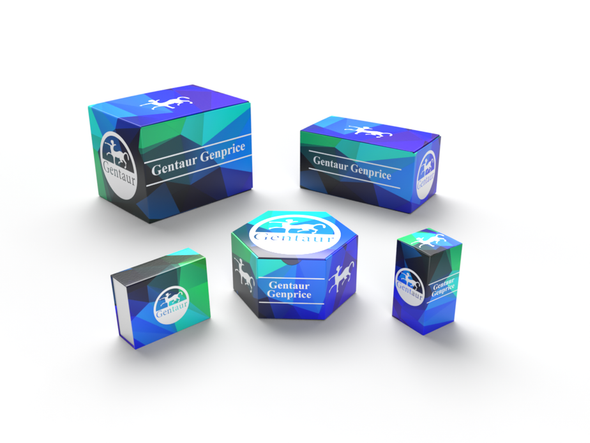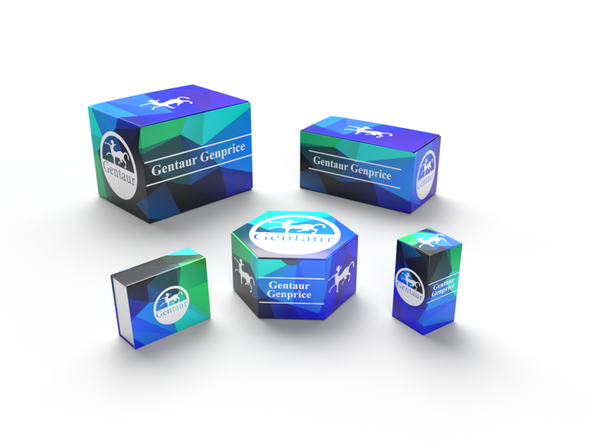Description
CKLF Antibody | 26-264 | Gentaur UK, US & Europe Distribution
Host: Rabbit
Reactivity: Human
Homology: N/A
Immunogen: Antibody produced in rabbits immunized with a synthetic peptide corresponding a region of human CKLF.
Research Area: Membrane
Tested Application: E, WB
Application: CKLF antibody can be used for detection of CKLF by ELISA at 1:312500. CKLF antibody can be used for detection of CKLF by western blot at 1 μg/mL, and HRP conjugated secondary antibody should be diluted 1:50, 000 - 100, 000.
Specificiy: N/A
Positive Control 1: Cat. No. 1205 - Jurkat Cell Lysate
Positive Control 2: N/A
Positive Control 3: N/A
Positive Control 4: N/A
Positive Control 5: N/A
Positive Control 6: N/A
Molecular Weight: 13 kDa
Validation: N/A
Isoform: N/A
Purification: Antibody is purified by peptide affinity chromatography method.
Clonality: Polyclonal
Clone: N/A
Isotype: N/A
Conjugate: Unconjugated
Physical State: Liquid
Buffer: Purified antibody supplied in 1x PBS buffer with 0.09% (w/v) sodium azide and 2% sucrose.
Concentration: batch dependent
Storage Condition: For short periods of storage (days) store at 4˚C. For longer periods of storage, store CKLF antibody at -20˚C. As with any antibody avoid repeat freeze-thaw cycles.
Alternate Name: CKLF, C32, CKLF1, CKLF2, CKLF3, CKLF4, HSPC224, UCK-1
User Note: Optimal dilutions for each application to be determined by the researcher.
BACKGROUND: CKLF is a cytokine. This gene is one of several chemokine-like factor genes located in a cluster on chromosome 16. CKLF is a potent chemoattractant for neutrophils, monocytes and lymphocytes. It also can stimulate the proliferation of skeletal muscle cells. This protein may play important roles in inflammation and in the regeneration of skeletal muscle.The product of this gene is a cytokine. Cytokines are small proteins that have an essential role in the immune and inflammatory responses. This gene is one of several chemokine-like factor genes located in a cluster on chromosome 16. The protein encoded by this gene is a potent chemoattractant for neutrophils, monocytes and lymphocytes. It also can stimulate the proliferation of skeletal muscle cells. This protein may play important roles in inflammation and in the regeneration of skeletal muscle. Alternatively spliced transcript variants encoding different isoforms have been identified.






